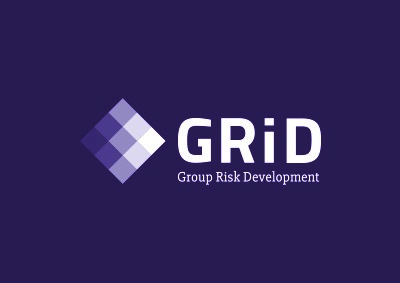Press release 19 July 2017.
Supporting staff through traumatic events is not often the primary reason that employers purchase group risk products or Employee Assistance Programmes. However, support services are available within many group risk policies but most are hugely under-utilised according to GRiD, the body representing the group risk industry.
Katharine Moxham, spokesperson for Group Risk Development, (GRiD) explained: “We are living in a fairly uncertain world at the moment which, alone, can give rise to increased stress and anxiety among employees. However, those that experience or witness a traumatic event themselves may need additional support but knowing just how to deliver that can be a concern for employers.”
Support provided alongside many group risk policies will provide help for employees who are suffering from Post Traumatic Stress Disorder (PTSD) by offering fast-track access to counselling and signposting to support groups where needed. Under a group income protection policy, for example, there will also be vocational rehabilitation support through an experienced case manager which gives an extra layer of help.
What is PTSD?
Often referred to as ‘shell shock’ after WWI and ‘combat stress reaction’ during the Vietnam war, PTSD affects more than just military personnel. Serious accidents, bereavements, miscarriage and traumatic births, natural or man-made disasters, terrorist attacks, childhood neglect, personal assault, life-threatening illnesses and more can all cause Acute Stress Disorder, which can then develop into PTSD. In addition, being exposed repeatedly to graphic details of traumatic events via an occupation can also cause PTSD. If symptoms, such as numbness, flashbacks, heightened awareness, sleeplessness, panic attacks do not dissipate within a few weeks, a diagnosis of PTSD may be given.
Several types of psychotherapy are usually used to treat PTSD, and since PTSD is considered a psychological injury, early intervention is crucial. Unfortunately, evidence* from the charity PTSD UK suggests that around 70% of people who suffer with PTSD in the UK do not receive any professional help at all.
Katharine Moxham said: “Employers can be hugely pivotal in supporting staff through difficult times: not only will they be able to identify changes in an employee’s behaviour and perhaps help with identifying symptoms, many organisations will be able to provide immediate support via their group risk benefits, getting the member of staff on the route to recovery.”
A member of staff with PTSD is unlikely to be fully productive in their job. Due to financial pressures, however, they may not feel in a position to seek rehabilitation. Group income protection, in particular, will not only relieve money worries and allow the employee time away from work to recuperate, but can also provide the professional counselling and practical advice required to get an employee back to health.
Moxham continued: “It is often the case that all employees can benefit from the professional support services that are attached to group risk products, even if the financial aspects of the policy are limited to smaller numbers of staff. Any employer who has a group risk policy should check the extra services that come along with the policy as they might be surprised to find that they can better support their staff without requiring any additional resources. The next step is to then communicate those benefits to staff on a regular basis, as we only tend to hear what we want to hear or what is relevant to us at any particular time.
*http://www.ptsduk.org/about-ptsd-uk/
- Ends –
For further information please contact:
Sharon Mason
SMUK Marketing and PR
smason@smuk.org.uk
Mob: 07747 611773
Land: 01252 843350
Katharine Moxham
Spokesperson for GRiD
Katharine.moxham@grouprisk.org.uk
Mob: 07887 512508
Notes for editors
About GRiD
Group Risk Development (GRiD) is the industry body for the group risk protection sector, promoting the value to UK businesses of providing financial protection for their staff, enhancing their wellbeing and improving employee engagement. Our membership includes insurers, reinsurers and intermediaries who have a collective wealth of experience built over years of operating in the group risk protection market. Under the chairmanship of Lee Lovett, CEO of Ellipse, GRiD aims to promote group risk through a collective voice to Government, policymakers, stakeholders and employers.
GRiD works with government departments and regulators involved in legislation and regulation affecting group risk benefits, and with other organisations involved in the benefits and financial protection arenas. GRiD also seeks to enhance the industry’s standing by encouraging best practice and by participating in industry-wide initiatives such as the professional qualification in group risk managed jointly with the Chartered Insurance Institute.
GRiD’s media activity aims to generate a wider awareness and understanding of group risk products and their benefits for employers and employees.
GRiD’s dedicated spokesperson, Katharine Moxham, provides expert media comment on a full range of group risk issues.
Follow Katharine Moxham on Twitter @KMoxham


